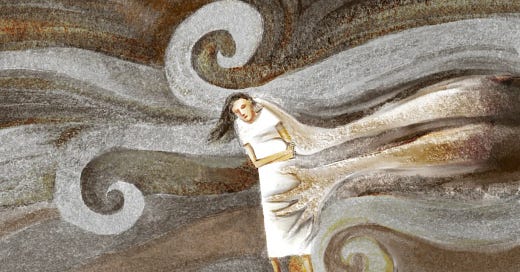EXTRA: Protecting Life Means Protecting Death
An Announcement and My New Essay at Dispatch Faith
Readers, you may know that I’ve written a few times for The Dispatch at their new-ish faith channel, Dispatch Faith.
Yesterday, The Dispatch announced that I have joined the ranks there as a Contributing Writer and it published my newest piece, which critiques the growing embrace of physician-assisted suicide across the globe (and one particular proposal under discussion in the U.K.)
Below is a snippet from my essay. You can read it in its entirety here (you may need to sign up for a free account to do so.)
To protect the lives of the most marginalized and powerless, the law must protect their deaths, too. Abuse victims who are terminally ill or disabled must be protected from any pressures by their partners to choose a hastened death rather than continued care. Those who are poor or otherwise marginalized need more support to receive medical care that could improve their quality of lives rather than the efficiency offered by self-imposed death.
In thinking through these arguments on behalf of the most vulnerable among us and considering their further implications, there is something to consider for all of us who are facing end-of-life decisions for ourselves or our loved ones.
Indeed, the acuteness of the situation for victims of abuse who are choosing whether to live or die offers a magnifying glass for all of us who will someday face difficult end-of-life decisions. The end of life makes us all vulnerable: the powerful as well as the powerless, the majority as well as the minority, the centered and voiced as well as the marginalized and silenced.
Laws that legalize euthanasia—no matter how merciful they purport to be—simply fail inherently to protect human life at one of its most vulnerable stages. They harm—lethally and irreversibly—rather than help. They eliminate the sufferer, not the suffering.





Thank you for this. I just read your full essay, and boy does it resonate. My wife and I are currently caring for her 95-year-old father, so have had time to think on this one. There is something holy in the helplessness of the dying. Not sentimental, but holy. A frailty that disarms our illusions of control, of autonomy, of clean, clinical ends. In the slow unraveling of the body, the soul’s true poverty is made visible. It is no coincidence that Christian mysticism has long regarded suffering not merely as burden but as disclosure. A piercing, luminous unveiling of what we are and what we are not.
Your reflection walks gently through a sacred valley where few dare to linger. You name what modern ethics, seduced by efficiency, so often forget: that the terminally ill are not obstacles to be managed or burdens to be resolved, but persons to be accompanied. And in that word, accompaniment, lies the whole mystery of the Incarnation. God did not save the world by escaping its pain. He saved it by inhabiting it. Utterly. I return to this notion regularly on my Substack Desert and Fire.
To choose death, no matter how sanitized the language, is to cut short the very crucible in which love is most radically revealed. I think of the final illness of St. John of the Cross, where his body decayed with tormenting slowness, yet his soul sang, “Where there is no love, put love, and you will draw love out.” That is not a spiritual maxim. It is an indictment of a world that seeks painless conclusions instead of painful communion.
The dying force us to confront what we have tried so hard to forget: that we belong to one another. The illusion of independence dies when a mother can no longer rise from her bed, and her child must become the parent, the priest, the witness. This, too, is sacrament.
To speak of autonomy in such moments is to import a courtroom into a cathedral. It mistakes the fragile whisper of suffering for a legal dilemma. But Christ never legislated compassion. He embodied it. In flesh, in blood, in broken bread. And always in the vulnerable.
The desert fathers spoke of kenosis, the self-emptying by which God descends into our weakness. To be with the dying, without fixing, without fleeing, is to participate in that descent. It is to say with trembling defiance: You do not have to walk into death alone. We will go with you, step by step, until the veil lifts.
No law can command this. But no law should obstruct it either.
As Simone Weil once wrote, “Affliction compels us to recognize as real what we do not think possible.” The dying teach us that love, real love, is not convenience. It is presence. It is cost. And it is the last and truest thing we have left to give.
This is wonderfully written and so important! My mother turns 90 today. She didn't recognize her granddaughter and great grandson when they visited her yesterday. She lies in a bed all day and sleeps a lot of the time. Yet she is healthy physically. She prays to pass on and join my dad. She isn't asking us to end her life. She is asking God to bring her home. We don't understand the whys but we love her dearly and when she is lucid, we enjoy her smiles and little giggles. I wouldn't give those up.